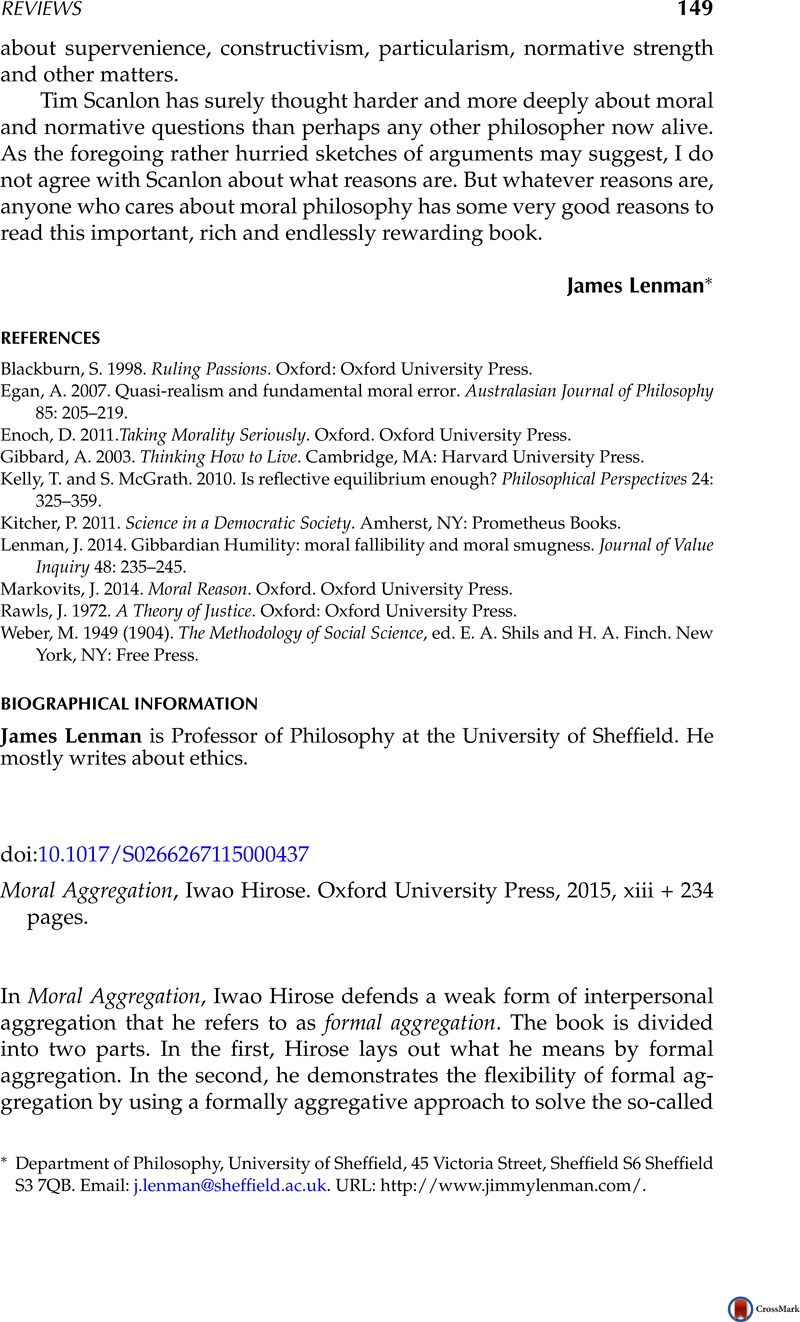No CrossRef data available.
Published online by Cambridge University Press: 01 December 2015

1 Well-being or desire satisfaction are examples for such factors.
2 To think of the WCC as a counterexample to formal aggregation, Hirose must assume that in the WCC, we judge it wrong not to bring about the best possible consequences.
3 While this view has problems of its own, this need not concern me here, as I am merely suggesting that our intuitions about the WCC are consistent with formal aggregation.
4 A complete and transitive order ≿ on some set X is continuous iff for every y ∊ X, the sets {x ∊ X: x ≿ y} and {x ∊ X: x ≾ y} are closed.
5 Hirose (39–40) makes the stronger claim that discontinuous orderings can never be represented by real-valued functions and are thus by definition inconsistent with formal aggregation. This is incorrect. If–-as Hirose (23, fn. 3) assumes – only countably many states of affairs need to be ranked, it is possible to represent any complete and transitive order with a real-valued function.
6 In light of the fact that Hirose defends formal aggregation as a constraint on moral theories, I take it that he wishes to reject the theories that violate it.